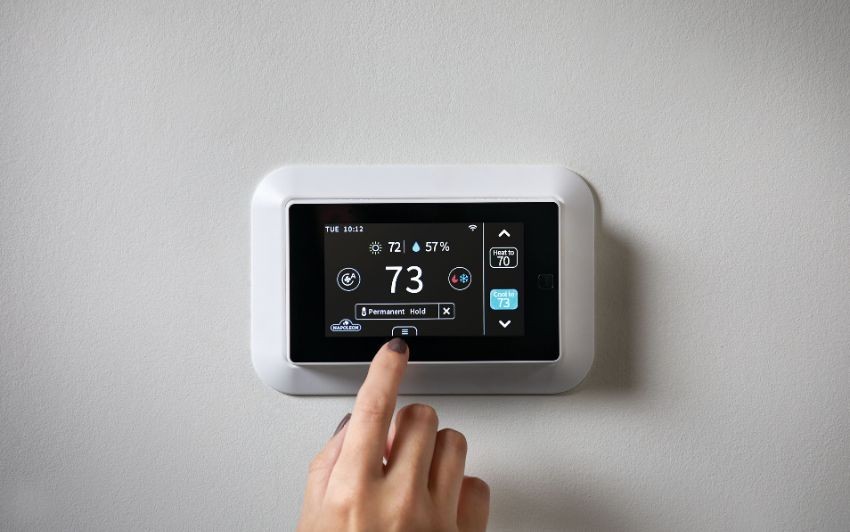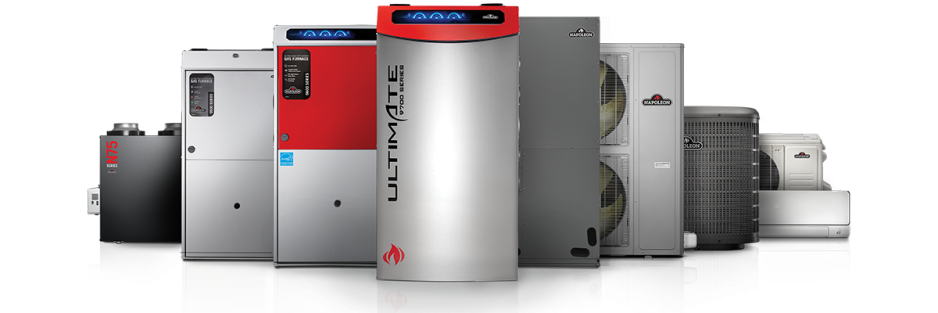
How to Choose Between the Different Types of Air Conditioners
With the sun beaming happily outside, summer is undoubtedly here! And while the heat is something we typically welcome with open arms, the rising temperatures can create a stifling environment within our homes. These conditions cause you to break a sweat and crave cool air. When this happens, installing an air conditioner will give you precisely what you need. But before you start shopping, you must learn more about the types of air conditioners and the factors you should consider when choosing one. Doing so can save you money and make your house more energy efficient!
4 Factors to Consider When Choosing a Type of Air Conditioner
There are endless different types of air conditioners on the market, which can be overwhelming for the first-time buyer. All may provide a similar result, but their differences lie in their specific attributes. To help you narrow down your choices, here are five factors you must consider.
1. Your Budget
The first thing you need to count is your budget; this determines how much you’re willing to spend on a quality air conditioner. Deciding on an allowance helps you focus on products within your price range.
2. Your Home's Specific Requirements
Next, get an air conditioner that fits the square footage of your home. If you’re cooling an entire house, a heating and cooling professional will need to come and provide a quote based on a number of factors, including house size, layout, and whether or not you have ducts. This last point will also determine what KIND of unit you can get (central air conditioner vs. ductless air conditioners).
These factors will also aid in determining how many BTUs you need. Most air conditioners have an average cooling power of 5,500 to 14,000 BTU per hour. The required capacity will vary, but a professional HVAC technician or salesperson will be able to guide you through this step based on your home’s unique specifications.
3. Energy Consumption
Before you pick an air conditioner, know its energy consumption first. This informs you of the trajectory of how high or low your utility bills will be.
4. Maintenance
Lastly, check with the air conditioner manufacturers about the maintenance of a specific model. See what kind of TLC a unit needs so that you’ll know what to do when the time comes. Finding out the average lifespan of a particular unit is also key before committing to a unit.
Types of Air Conditioner Units
Central Air Conditioner
For an all-in-one air conditioner, a central unit is what you need. This type can cool each room in your home since air flows through your house’s ductwork. The primary components of this unit include a compressor, condenser, expansion valve, and evaporator coil, and they all work together to cool the air and circulate it throughout the house.
While they tend to lean on the pricier side, this type of air conditioner provides improved energy efficiency in the home and a greater cooling capacity. Additionally, they are known to be more reliable and require less maintenance than other types of cooling systems.
Napoleon offers four kinds of central air conditioners with a SEER rating of 13 to 16. They are guaranteed to function efficiently, using less energy to cool your home.
Ductless Air Conditioner
If your home is older or doesn’t have ductwork, choosing a ductless air conditioner, also known as a split air conditioner, is a great option. This unit comes with exterior and interior components; the former is placed outside and condenses cold air before delivering it to the latter. The internal terminal is mounted on a wall and contains a fan that blows cool air throughout the home.
Benefits of this type of air conditioner include increased energy efficiency, flexibility, and ease of installation. Some disadvantages are a higher initial cost, and the potential need for more units to cool larger spaces.
Portable Air Conditioner
As you may have guessed from its name, a portable air conditioner is a single unit you can move from room to room. It requires a power outlet and window access where its funnel will be placed and used as an exhaust. Portable air conditioners can be a good option for renters since they don't require permanent installation and are an effective solution for spot cooling.
Portable air conditioners are not recommended for long-term use. They also make a lot of noise, which can be a nuisance at night, can include higher electricity costs, and have the potential for leaking.
Window Air Conditioners
Window air conditioners are another option for smaller spaces or renters. This air conditioner type comes as one unit with all its components compressed inside. It works by drawing in hot air from the room, which passes over cold evaporator coils. The air is then sent back into the room and the hot air is expelled through the air conditioner’s exhaust vent.
Window air conditioners are more affordable than their permanent counterparts, they’re relatively easy to install, and they’re portable. However, they provide limited cooling capacity, are noisy, and they need a window in order to operate.
Heat Pumps and Air Handlers
For year-round, long-term usage, a heat pump paired with an air handler is the best option.
These machines work in tandem by circulating heated or cooled air through a home. In the summer, the heat pump absorbs the heat from inside the home and transfers it outside. This process is done by reversing the direction of refrigerant in the heat pump. The air handler then circulates the cooled air throughout the house to provide a comfortable living environment.
The main pros of a heat pump are energy conservation, cost savings, and environmental friendliness. The cons are that they require regular maintenance and can be costly to repair if something goes wrong.
What Air Conditioner Type Is Best for You?
Now that you know about the different types of air conditioners, making an informed decision should be easy!
If you’re still unsure, put your trust in Napoleon. Our cooling solutions are engineered and built to last. With precise craftsmanship, forward-thinking innovation, and competitive pricing, you can expect reliable air conditioners that enhance the quality of your home. For more details, find a Napoleon dealer near you.



